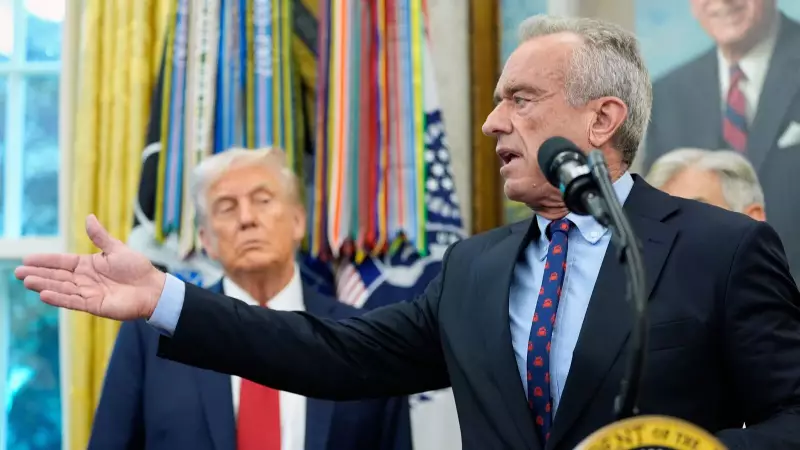
In a move that challenges conventional nutritional wisdom, presidential hopeful Robert F. Kennedy Jr. is preparing to launch a campaign that could dramatically shift American eating habits. The independent candidate plans to advocate for increased consumption of saturated fats, directly confronting established dietary guidelines that have dominated American health policy for generations.
The Presidential Plate: RFK Jr.'s Nutritional Manifesto
Kennedy's forthcoming policy initiative aims to dismantle what he describes as "failed dietary dogmas" that have contributed to rising health crises across the United States. His approach represents a radical departure from current federal nutrition recommendations that have long cautioned against high saturated fat intake.
Challenging Decades of Dietary Doctrine
The candidate's position aligns with emerging scientific perspectives that question the traditional link between saturated fats and heart disease. Kennedy argues that the real culprits behind America's deteriorating health are processed foods, sugars, and refined carbohydrates—not the natural fats that humans have consumed for centuries.
This nutritional philosophy marks a significant break from the low-fat revolution that began in the 1970s and has influenced everything from school lunch programs to medical advice. Kennedy's team believes that restoring traditional fats to American diets could help reverse the tide of obesity, diabetes, and metabolic disorders.
The Science Behind the Shift
Recent studies have begun to challenge the long-held belief that saturated fats directly cause heart disease. Some research now suggests that the relationship is more complex than previously thought, with factors like inflammation, insulin resistance, and overall dietary patterns playing more significant roles in cardiovascular health.
Kennedy's approach appears to draw from these evolving scientific understandings, positioning him at the forefront of a growing movement that seeks to rehabilitate the reputation of natural fats from sources like butter, coconut oil, and red meat.
Political Implications and Public Health Debate
The proposed dietary shift isn't just about nutrition—it represents a broader philosophical stance about personal freedom and government overreach. Kennedy frames his position as pushing back against what he sees as excessive government intervention in personal food choices.
This stance is likely to generate heated debate among nutrition experts, public health officials, and political opponents. The medical establishment has largely maintained its position on limiting saturated fats, creating a potential battleground between traditional health authorities and Kennedy's alternative vision.
What This Means for American Families
If implemented, Kennedy's policies could transform everything from food labeling requirements to school cafeteria menus and medical education. The initiative would likely face significant opposition from various sectors, including parts of the medical community, food industry interests, and public health organizations committed to current dietary guidelines.
As the 2024 election approaches, Kennedy's unusual focus on dietary policy distinguishes him from other candidates and signals his willingness to tackle controversial issues that intersect science, policy, and personal freedom.





